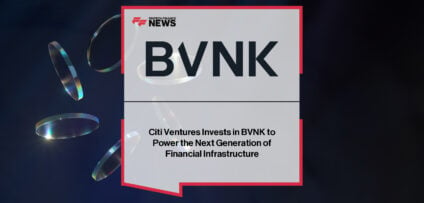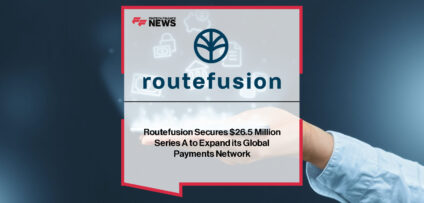Breaking News

How APIs Can Advance Cooperation between Banks and Fintechs
About APIs
An API, or an Application Programming Interface, is a technical standard that specifies how software components should connect and exchange information. With an API, only the desired aspects of software functionality are uncovered, while the rest remains hidden. It means that an API can receive only previously defined types of requests from a client thereby restricting the third-party access and use of the rest of an app’s data and functionality. As a result, using APIs, fintech developers can access banks’ data to create innovative services and tools that enhance banks’ performance, without compromising any sensitive information.
Why banks care for APIs
The banks’ interest in using APIs grew after the appearance of account aggregation sites and their widely used practice of screen scraping. This technique is far less secure than APIs, since it requires customers to share their logins and passwords with third parties. Jamie Dimon, JPMorgan Chase CEO, shared his vision on screen scraping that aptly outlines the U.S. banks’ main concerns:
“When we all readily click “I agree” online or on our mobile devices, allowing third-party access to our bank accounts and financial information, it is fairly clear that most of us have no idea what we are agreeing to or how that information might be used by a third party … Many third parties sell or trade information in a way customers may not understand, and the third parties, quite often, are doing it for their own economic benefit – not for the customer’s benefit.”
APIs, conversely, can access a bank’s data without the need to use account credentials. In addition, API-based integrations allow a bank to have control over the data sharing process, which means the bank can define how much data it will share with third parties as well as set the price for such data exchange. Thus, APIs can alleviate a serious banks’ concern of giving a third party unlimited access to customer information.
How APIs can enhance banking
Banks are currently seeking for ways to collaborate with fintechs, since the latter have far more creative approaches in providing customer-centric solutions than traditional institutions (World Retail Banking Report 2017). Thus, banks can use APIs to benefit from a wide variety of fintech applications that offer personalized customer experience. As for fintechs, a wide adoption of APIs means easier entrance on the banking and financial services market. As a result, these new entrants can bring fresh ideas about the ways of improving banking experience.
Customers, in their turn, can use third-party apps to improve their finance management. For example, customers may choose the most convenient app to pay bills, make P2P transfers or analyze their spending while keeping their money safe in a bank.
How banks experiment with APIs
As usual, the biggest banks are the first to start experimenting with API-led models. For example, Wells Fargo and JP Morgan Chase opted for partner APIs. In particular, Wells Fargo shared an API with Xero, an accounting software provider, to let customers pour their bank account data directly into the app. JP Morgan Chase also used an API to share data with Mint to help its customers manage accounts and credit cards from different banks within one app.
Still, these are just the initial steps towards a true open banking ecosystem, which implies the creation of developer portals with public APIs. Some of the few examples from the U.S. include Capital One’s DevExchange platform containing numerous features for developers’ engagement (e.g., including API access, sandbox testing, documentation, code snippets, and reference apps) as well as Citi’s global API Developer Hub, which currently targets at account management, peer to peer payments, money transfer to institutions, Citi rewards, investment purchases and account authorization solutions.
Although such solutions help to create a collaborative ecosystem where banks and fintechs can leverage their complementary strengths, U.S. banks still don’t inherently support API integration.
Why banks show concern about APIs
Though the potential of using APIs may seem highly attractive, the majority of banks worry that giving away customers’ data unlocks opportunities for new competitors and even threatens their current customer relationships. Indeed, why should customers use online or mobile banking solutions, when there’re numerous fintech apps that bring together data from all their accounts and financial providers?
Still, there’s a completely opposite opinion on the issue. For example, the EU has adopted PSD2, a legal framework that obliges banks to provide access to customer data through APIs. The UK has gone even further and created an Open Banking Standard to explain how open banking data should be created, shared and used. Such legislative decisions openly encourage competition, make the banking and financial services market more homogenous but highly innovative at the same time.
Banks should compete with, not against
As Edwin Lee competently noted in his essay, it’s better to compete with companies than against them to advance the common good and deliver win-win solutions for the banking industry. Thus, instead of rising numerous concerns, banks should think strategically and seek for new business models that APIs can bring to the industry. In particular, open APIs may turn a bank into a marketplace for financial apps similar to AppStore, which in its turn can drive more transactions and create new revenue streams.
Written by Natallia Babrovich
Natallia is a Business Analyst at ScienceSoft, an IT consulting company headquartered in McKinney, Texas. Since 2013, her advanced focus is IT solutions for financial sector and healthcare, with such projects in her portfolio as reporting for CMS and a care coordination portal.
- EXCLUSIVE: “Passion Project” – Brice van de Walle, Mastercard in ‘The Fintech Magazine’ Read more
- FreedomPay Drives Global Merchant Innovation Read more
- FIS Brings AI-Powered Advancements to Seamless, Personalized Digital Banking Experiences Read more
- Citi Ventures Invests in BVNK to Power the Next Generation of Financial Infrastructure Read more
- Nearly Two-Thirds of Global Retailers Say Payment Method Flexibility Drives Revenue Growth, ACI Worldwide Survey Finds Read more













